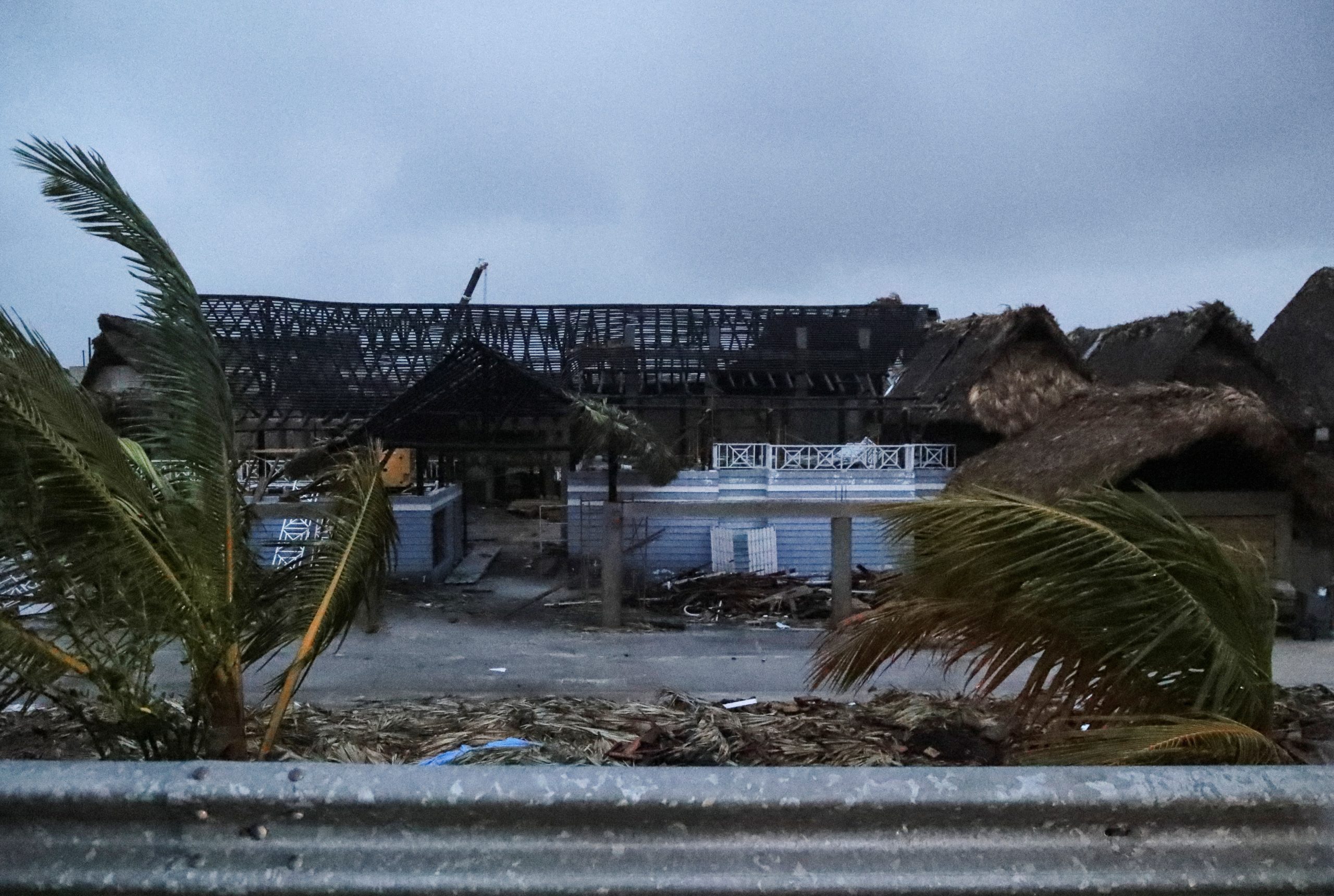
[elfsight_social_share_buttons id=”1″]
Hurricane Fiona bore down on Turks and Caicos Islands on Tuesday as a powerful Category 3 storm, threatening to devastate the tiny Caribbean archipelago after cutting a path of destruction through the Dominican Republic and Puerto Rico.
Turks and Caicos could experience up to 8 inches of rainfall and life-threatening flash flooding from the storm, which was just offshore of the chain’s biggest island, the National Hurricane Center said in its 8 a.m. Eastern update.
A tropical storm warning is up for the southeastern Bahamas and concern is growing that the hurricane could have the island-nation of Bermuda in its sights.
Fiona, the first “major hurricane” of the season, is forecast to grow into a Category 4 in the coming days as it turns north and passes near Bermuda later this week, said Richard Pasch, a senior hurricane specialist at the NHC.
“Turks and Caicos Islands, I urge you to heed the advice and warnings given by the Department of Disaster Management and Emergencies and implore you to carry out all necessary preparations to protect your families and your property,” Premier Washington Misick said in a statement from London, where he was attending the funeral of Queen Elizabeth II.
At least three people have died in the storm, two in Puerto Rico and one in Guadeloupe earlier in the week, officials said. As of Tuesday morning, 1.3 million homes and businesses in Puerto Rico did not have power, according to a Reuters report.
On the Turks and Caicos Islands, a British Overseas Territory with 40 low-lying coral islands and a population of about 40,000 about 700 miles southeast of Florida, the government’s National Emergency Operations Center (NEOC) told residents of three eastern islands to shelter in place and ordered businesses to close.
“All persons are to remain indoors at their residence, place of safety, or where they seek shelter until the NEOC issues NATIONAL ALL CLEAR”, the agency told residents of Grand Turk, South Caicos, and Salt Cay.
Residents were stocking up on food and water while shelters were being prepared. Foreign governments issued travel alerts for the islands, a popular tourist destination.
Similar preparations were underway in the eastern Bahamas. Fiona is on track to hit the eastern Bahamas on Wednesday, when it could reach Category 4 strength.
Fiona made landfall in Puerto Rico on Sunday afternoon, dumping up to 30 inches of rain in some areas, with at least two people killed. The southern part of Puerto Rico, which already registered 35 inches of rain in some areas, could see another 4 inches of rainfall over the next day, the NHC said in its latest update.
The storm comes five years after Puerto Rico was ravaged by Hurricane Maria, which triggered the worst power blackout in U.S. history and killed 3,000.
U.S. President Joe Biden spoke with Puerto Rico Governor Pedro Pierluisi on Monday, promising to increase the support personnel sent to the island over the next few days.
Federal Emergency Management Agency (FEMA) Administrator Deanne Criswell will travel there on Tuesday.
Nearly 80% of Puerto Rico remained without power on Tuesday, according to Poweroutage.us, as crews worked to restore electricity. Officials said it would take days to reconnect the whole island of 3.3 million people.
Puerto Rico’s power grid is fragile despite emergency repairs after Maria, according to the Center for a New Economy, a Puerto Rican think tank.
Maria, a Category 5 storm in 2017, left 1.5 million customers without electricity and knocked out 80% of power lines. Thousands of Puerto Ricans still live under makeshift tarpaulin roofs.
Fiona made landfall in the Dominican Republic near Boca Yuma at 3:30 a.m. local time on Monday, according to the NHC. The center of the storm reached the northern coast of Hispaniola, the island that the Dominican Republic shares with Haiti, before noon. Some parts of the Dominican Republic received up to 20 inches of rain, with 4 more inches expected on Tuesday.
As of Monday afternoon, more than 1 million Dominicans were without running water, a national emergency management official told CNN.
It is the first hurricane to score a direct hit on the Dominican Republic since Jeanne left severe damage in the east of the country in 2004.
Copyright 2022 Thomson/Reuters
